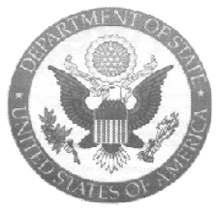Installment One Hundred Thirty-Seven
This Ask the Consul installment addresses questions regarding President Obama’s announcement on the Deferred Action Process for Young People

No, the Department of Homeland Security has announced that effective June 15th, 2012, certain young people who were brought to the United States as young children, do not present a risk to national security or public safety, and meet the following criteria will be eligible for an exercise of discretion by the Department of
Homeland Security, specifically deferred action from deportation, on a case by case basis:
1. Came to the United States under the age of sixteen;
2. Have continuously resided in the United States for a least five years before June 15th, 2012, and were present in the United States on June 15th, 2012;
3. Are currently in school, have graduated from high school, have obtained a general education development certificate, or are honorably discharged veterans of the Coast Guard or Armed Forces of the United States;
4. Have not been convicted of a felony offense, a significant misdemeanor offense, multiple misdemeanor offenses, or otherwise pose a threat to national security or public safety;
5. Are not above the age of thirty.
Those who demonstrate that they meet the criteria will be eligible to receive deferred action for a period of two years, subject to renewal, and will be eligible to apply for work authorization.
Only individuals who can prove through verifiable documentation that they meet the above mentioned criteria will be eligible for deferred action. Individuals will not be eligible if they are not currently in the United States and cannot prove that they have been physically present in the United States for at least five years before June 15th, 2012.
Deferred action requests are decided on a case-by-case basis in the United States by the Department of Homeland Security. The U.S. Embassy in Georgetown Guyana, which is part of the Department of State, has no influence over this process or these cases.
Individuals seeking more information on the new policy should visit United States Citizenship and Immigration Services’ (USCIS) website, www.uscis.gov, United States Immigration and Customs Enforce-ment’s (ICE) website , www.ice.gov, or Department of Homeland Security’s (DHS) website , www.dhs.gov. Individuals can also call USCIS’ hotline at 1-800-375-5283 or ICE’s hotline at 1-888-351-4024 during business hours with questions or to request more information.
***
“Ask the Consul” is a fortnightly column by the U.S. Embassy answering questions about U.S. immigration law and visa issues. If you have a general question about visa policy please email it to us at AskGeorge@state.gov. We select questions every other week and publish the answers in Stabroek News and on our website at http://georgetown.usembassy.gov/ ask-the-consul.html. Information about visas and travel can be viewed at http://georgetown.usembassy.gov, http://travel.state.gov, and at http://www.dhs.gov. Applicants are strongly encouraged to prepare their own documents and avoid third-party advice. U.S.
Consular rules change frequently and non-U.S. government advisors often provide inadequate or inaccurate information.
Other than the questions we select, we DO NOT respond to questions sent to Ask the Consul. Please contact the visa inquiries unit (email visageorge@state.gov or call 225-7965 between 8 am and 4 pm Monday through Friday) if you have questions about a specific case.





